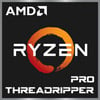
Intel Core i7-14700KF Benchmark, Test and specs
Last updated:
The Intel Core i7-14700KF has 20 cores with 28 threads and is based on the 14. gen of the Intel Core i7 series. The processor uses a mainboard with the LGA 1700 socket and was released in Q4/2023. The Intel Core i7-14700KF scores 2,204 points in the Geekbench 5 single-core benchmark. In the Geekbench 5 multi-core benchmark, the result is 24,218 points.

| Name: | Intel Core i7-14700KF |
|---|---|
| Family: | Intel Core i7 (298) |
| CPU group: | Intel Core i 14000 (23) |
| Architecture: | Raptor Lake S Refresh |
| Segment: | Desktop / Server |
| Generation: | 14 |
| Predecessor: | Intel Core i7-13700KF |
| Successor: | -- |
CPU Cores and Base Frequency
The Intel Core i7-14700KF has 20 CPU cores and can calculate 28 threads in parallel. The clock frequency of the Intel Core i7-14700KF is 3.40 GHz (5.60 GHz). The number of CPU cores greatly affects the speed of the processor and is an important performance indicator.
| CPU Cores / Threads: | 20 / 28 |
|---|---|
| Core architecture: | hybrid (big.LITTLE) |
| A-Core: | 8x Raptor Cove |
| B-Core: | 12x Gracemont |
| Hyperthreading / SMT: | Yes |
|---|---|
| Overclocking: | Yes |
| A-Core Frequency: | 3.40 GHz (5.60 GHz) |
| B-Core Frequency: | 2.50 GHz (4.30 GHz) |
Memory & PCIeThe processor can use up to 192 GB memory in 2 (Dual Channel) memory channels. The maximum memory bandwidth is 89.6 GB/s. The memory type as well as the amount of memory can greatly affect the speed of the system. |
|
| Memory type: | Memory bandwidth: |
|---|---|
| DDR5-5600 DDR4-3200 | 89.6 GB/s 51.2 GB/s |
| Max. Memory: | 192 GB |
| Memory channels: | 2 (Dual Channel) |
| ECC: | No |
| PCIe: | 5.0 x 20 |
| PCIe Bandwidth: | 78.8 GB/s |
Thermal ManagementThe thermal design power (TDP for short) of the processor is 125 W. The TDP specifies the necessary cooling solution that is required to cool the processor sufficiently. The TDP usually gives a rough idea of the actual power consumption of the CPU. |
|
|---|---|
| TDP (PL1 / PBP): | 125 W |
| TDP (PL2): | 253 W |
| TDP up: | -- |
| TDP down: | -- |
| Tjunction max.: | 100 °C |
Technical details
The Intel Core i7-14700KF is made in 10 nm. The smaller the manufacturing process of a CPU, the more modern and energy-efficient it is. Overall, the processor has 61.00 MB cache. A large cache can greatly speed up the processor's speed in some cases such as games.
| Technology: | 10 nm |
|---|---|
| Chip design: | Monolithic |
| Socket: | LGA 1700 |
| L2-Cache: | 28.00 MB |
| L3-Cache: | 33.00 MB |
| AES-NI: | Yes |
| Operating systems: | Windows 10, Windows 11, Linux |
| Virtualization: | VT-x, VT-x EPT, VT-d |
|---|---|
| Instruction set (ISA): | x86-64 (64 bit) |
| ISA extensions: | SSE4.1, SSE4.2, AVX2, AVX2+ |
| Release date: | Q4/2023 |
| Release price: | -- |
| Part Number: | -- |
| Documents: | Technical data sheet |
Rate this processor
Benchmark results

The benchmark results for the Intel Core i7-14700KF have been carefully checked by us. We only publish benchmark results that have been created by us or that have been submitted by a visitor and then checked by a team member. All results are based on and fullfill our benchmark guidelines.
Cinebench 2024 (Single-Core)
The Cinebench 2024 benchmark is based on the Redshift rendering engine, which is also used in Maxon's 3D program Cinema 4D. The benchmark runs are each 10 minutes long to test whether the processor is limited by its heat generation.

|
Intel Core i9-13900K
24C 32T @ 5.80 GHz |
||

|
Intel Core i9-13900KF
24C 32T @ 5.80 GHz |
||

|
Qualcomm Snapdragon X Elite (X1E-84-100)
12C 12T @ 4.20 GHzNot verified |
||
|
|
Intel Core i7-14700KF
20C 28T @ 5.60 GHz |
||

|
Intel Core i7-14700K
20C 28T @ 5.60 GHz |
||

|
Apple M2 Ultra (76-GPU)
24C 24T @ 3.50 GHz |
||

|
Apple M2 Ultra (60-GPU)
24C 24T @ 3.50 GHz |
||
Cinebench 2024 (Multi-Core)
The Multi-Core test of the Cinebench 2024 benchmark uses all cpu cores to render using the Redshift rendering engine, which is also used in Maxons Cinema 4D. The benchmark run is 10 minutes long to test whether the processor is limited by its heat generation.

|
Intel Core i9-13900K
24C 32T @ 5.80 GHz |
||

|
AMD Ryzen 9 7950X
16C 32T @ 5.70 GHz |
||

|
AMD Ryzen 9 7950X3D
16C 32T @ 5.70 GHz |
||
|
|
Intel Core i7-14700KF
20C 28T @ 5.60 GHz |
||

|
Intel Core i7-14700K
20C 28T @ 5.60 GHz |
||

|
AMD Ryzen Threadripper 3960X
24C 48T @ 4.50 GHz |
||

|
Apple M2 Ultra (76-GPU)
24C 24T @ 3.50 GHz |
||
Cinebench R23 (Single-Core)
Cinebench R23 is the successor of Cinebench R20 and is also based on the Cinema 4 Suite. Cinema 4 is a worldwide used software to create 3D forms. The single-core test only uses one CPU core, the amount of cores or hyperthreading ability doesn't count.

|
Intel Core i9-14900
24C 32T @ 5.80 GHz |
||

|
Intel Core i9-13900K
24C 32T @ 5.80 GHz |
||

|
Intel Core i9-13900KF
24C 32T @ 5.80 GHz |
||
|
|
Intel Core i7-14700KF
20C 28T @ 5.60 GHz |
||

|
Intel Core i7-14700K
20C 28T @ 5.60 GHz |
||

|
Intel Core i9-13900F
24C 32T @ 5.60 GHz |
||

|
Intel Core i9-13900
24C 32T @ 5.60 GHz |
||
Cinebench R23 (Multi-Core)
Cinebench R23 is the successor of Cinebench R20 and is also based on the Cinema 4 Suite. Cinema 4 is a worldwide used software to create 3D forms. The multi-core test involves all CPU cores and taks a big advantage of hyperthreading.

|
AMD Ryzen Threadripper 3960X
24C 48T @ 4.00 GHz |
||

|
Intel Core i9-14900
24C 32T @ 5.40 GHz |
||

|
Intel Core i9-14900F
24C 32T @ 5.40 GHz |
||
|
|
Intel Core i7-14700KF
20C 28T @ 5.30 GHz |
||

|
Intel Core i7-14700K
20C 28T @ 5.30 GHz |
||

|
AMD Ryzen 9 7945HX3D
16C 32T @ 2.30 GHz |
||

|
AMD Ryzen 9 7940HX
16C 32T @ 2.30 GHzNot verified |
||
Geekbench 5, 64bit (Single-Core)
Geekbench 5 is a cross plattform benchmark that heavily uses the systems memory. A fast memory will push the result a lot. The single-core test only uses one CPU core, the amount of cores or hyperthreading ability doesn't count.

|
Intel Core i9-13900KS
24C 32T @ 6.00 GHz |
||

|
AMD Ryzen 9 7900
12C 24T @ 5.40 GHz |
||

|
AMD Ryzen 9 PRO 7945
12C 24T @ 5.40 GHz |
||
|
|
Intel Core i7-14700KF
20C 28T @ 5.60 GHz |
||

|
Intel Core i7-14700K
20C 28T @ 5.60 GHz |
||

|
Intel Core i9-14900F
24C 32T @ 5.80 GHz |
||

|
Intel Core i9-14900
24C 32T @ 5.80 GHz |
||
Geekbench 5, 64bit (Multi-Core)
Geekbench 5 is a cross plattform benchmark that heavily uses the systems memory. A fast memory will push the result a lot. The multi-core test involves all CPU cores and taks a big advantage of hyperthreading.

|
AMD EPYC 7532
32C 64T @ 2.90 GHz |
||

|
AMD EPYC 7413
24C 48T @ 3.40 GHz |
||

|
AMD Ryzen 9 7950X
16C 32T @ 5.20 GHz |
||
|
|
Intel Core i7-14700KF
20C 28T @ 5.30 GHz |
||

|
Intel Core i7-14700K
20C 28T @ 5.30 GHz |
||

|
Apple M1 Ultra (48-GPU)
20C 20T @ 3.20 GHz |
||

|
Apple M1 Ultra (64-GPU)
20C 20T @ 3.20 GHz |
||
Geekbench 6 (Single-Core)
Geekbench 6 is a benchmark for modern computers, notebooks and smartphones. What is new is an optimized utilization of newer CPU architectures, e.g. based on the big.LITTLE concept and combining CPU cores of different sizes. The single-core benchmark only evaluates the performance of the fastest CPU core, the number of CPU cores in a processor is irrelevant here.

|
AMD Ryzen 9 7900X
12C 24T @ 5.60 GHz |
||

|
Intel Xeon w7-2495X
24C 48T @ 4.80 GHz |
||

|
AMD Ryzen 9 7950X3D
16C 32T @ 5.70 GHz |
||
|
|
Intel Core i7-14700KF
20C 28T @ 5.60 GHz |
||

|
Intel Core i7-14700K
20C 28T @ 5.60 GHz |
||

|
AMD Ryzen 7 7700X
8C 16T @ 5.40 GHz |
||

|
AMD Ryzen Threadripper 7980X
64C 128T @ 5.10 GHz |
||
Geekbench 6 (Multi-Core)
Geekbench 6 is a benchmark for modern computers, notebooks and smartphones. What is new is an optimized utilization of newer CPU architectures, e.g. based on the big.LITTLE concept and combining CPU cores of different sizes. The multi-core benchmark evaluates the performance of all of the processor's CPU cores. Virtual thread improvements such as AMD SMT or Intel's Hyper-Threading have a positive impact on the benchmark result.

|
AMD Ryzen Threadripper PRO 3995WX
64C 128T @ 3.00 GHz |
||

|
AMD Ryzen Threadripper PRO 5995WX
64C 128T @ 3.20 GHz |
||

|
AMD Ryzen Threadripper PRO 5975WX
32C 64T @ 4.00 GHz |
||
|
|
Intel Core i7-14700KF
20C 28T @ 5.30 GHz |
||

|
Intel Core i7-14700K
20C 28T @ 5.30 GHz |
||

|
Intel Core i9-13900
24C 32T @ 5.30 GHz |
||

|
Intel Xeon Gold 6442Y
24C 48T @ 2.00 GHz |
||
Estimated results for PassMark CPU Mark
Some of the CPUs listed below have been benchmarked by CPU-monkey. However the majority of CPUs have not been tested and the results have been estimated by a CPU-monkey’s secret proprietary formula. As such they do not accurately reflect the actual Passmark CPU mark values and are not endorsed by PassMark Software Pty Ltd.

|
AMD EPYC 7443
24C 48T @ 3.60 GHz |
||

|
Intel Core i9-13900
24C 32T @ 5.30 GHz |
||

|
Intel Core i9-13900F
24C 32T @ 5.30 GHz |
||
|
|
Intel Core i7-14700KF
20C 28T @ 5.30 GHz |
||

|
Intel Core i7-14700K
20C 28T @ 5.30 GHz |
||

|
AMD Ryzen 9 7900X
12C 24T @ 5.40 GHz |
||

|
Intel Xeon Gold 6348
28C 56T @ 3.00 GHz |
||
CPU-Z Benchmark 17 (Single-Core)
The CPU-Z benchmark measures a processor's performance by measuring the time it takes the system to complete all benchmark calculations. The faster the benchmark is completed, the higher the score.
|
|
Intel Core i7-14700KF
20C 28T @ 5.30 GHz |
||

|
Intel Core i7-14700K
20C 28T @ 5.30 GHz |
||

|
Intel Core i9-13900KF
24C 32T @ 5.50 GHz |
||

|
Intel Core i9-13900K
24C 32T @ 5.50 GHz |
||

|
Intel Core i9-13900F
24C 32T @ 5.30 GHz |
||

|
Intel Core i9-13900
24C 32T @ 5.30 GHz |
||

|
Intel Core i5-13600KF
14C 20T @ 5.10 GHz |
||
CPU-Z Benchmark 17 (Multi-Core)
The CPU-Z benchmark measures a processor's performance by measuring the time it takes the system to complete all benchmark calculations. The faster the benchmark is completed, the higher the score.

|
AMD Ryzen Threadripper 3960X
24C 48T @ 3.80 GHz |
||

|
AMD Ryzen Threadripper 2990WX
32C 64T @ 3.00 GHz |
||

|
AMD Ryzen 9 7950X
16C 32T @ 4.50 GHz |
||
|
|
Intel Core i7-14700KF
20C 28T @ 3.40 GHz |
||

|
Intel Core i7-14700K
20C 28T @ 3.40 GHz |
||

|
AMD Ryzen Threadripper 2970WX
24C 48T @ 3.00 GHz |
||

|
AMD Ryzen 9 5950X
16C 32T @ 3.40 GHz |
||
CPU performance per watt (efficiency)
Efficiency of the processor under full load in the Cinebench R23 (multi-core) benchmark. The benchmark result is divided by the average energy required (CPU package power in watts). The higher the value, the more efficient the CPU is under full load.

|
Intel Core i5-13400F
15,890 CB R23 MC @ 94 W |
||

|
AMD Ryzen 9 5900X
21,878 CB R23 MC @ 131 W |
||

|
AMD Ryzen 7 5800H
12,179 CB R23 MC @ 75 W |
||
|
|
Intel Core i7-14700KF
33,572 CB R23 MC @ 209 W |
||

|
Intel Core i7-12700H
15,453 CB R23 MC @ 96 W |
||

|
Intel Core i7-14700K
33,572 CB R23 MC @ 209 W |
||

|
Intel Core i9-13900KS
40,837 CB R23 MC @ 257 W |
||
Benchmarks

Cinebench 2024 (SC)
272 entries
272 entries

Cinebench 2024 (MC)
271 entries
271 entries

Cinebench R23 (SC)
586 entries
586 entries

Cinebench R23 (MC)
565 entries
565 entries

Geekbench 5 (SC)
2,488 entries
2,488 entries

Geekbench 5 (MC)
2,461 entries
2,461 entries

Geekbench 6 (SC)
1,755 entries
1,755 entries

Geekbench 6 (MC)
1,703 entries
1,703 entries

3DMark Timespy (iGPU)
516 entries
516 entries

PassMark CPU-Mark
2,392 entries
2,392 entries

CPU-Z Benchmark 17 (SC)
231 entries
231 entries

CPU-Z Benchmark 17 (MC)
733 entries
733 entries

CPU performance per watt (efficiency)
109 entries
109 entries
Description of the processor
The 14th generation Intel Core i7-14700K / Intel Core i7-14700KF is the only CPU to receive a significant improvement over the previous generation. In addition to the 8 large P-cores (Raptor Cove architecture), the Intel Core i7-14700KF now also has 12 E-cores (Gracemont architecture). Compared to the previous model, the Intel Core i7-13700KF, these are an additional 4 E-cores.In addition to the four additional E-cores, the clock frequency of the Intel Core i7-14700KF has also increased by 200 MHz for the P-cores and 100 MHz for the E-cores. In multi-core benchmarks, the Intel Core i7-14700KF can gain up to 20 percent compared to the previous model under full load. Other 14th generation CPUs can hardly differentiate themselves from their predecessor models with the same number of cores.
Nothing has changed in terms of RAM support in the 14th generation. Up to 192 GB in two memory channels (maximum four memory modules) is still supported. This results in a maximum memory bandwidth of 89.6 GB per second when using DDR5-5600 memory.
The Intel Core i7-14700KF has 28 MB Level 2 cache and 33 MB Level 3 cache, a total of 7 MB more than the Intel Core i7-13700KF. The increased amount of cache results from the additional 4 E-cores of the processor.
Devices can be connected via PCIe 5.0 with 20 lines (CPU). Thats enough for a fast graphics card and an M.2 SSD. Additional devices can be powered via the motherboards chipset.
The TDP of the Intel Core i7-14700KF is 125 watts (PL1), but the processor can permanently consume up to 253 watts of energy. The sweet spot of the processor, where the processor has good efficiency with hardly any reduced performance, is probably around 120 to 140 watts. If you want to take advantage of the sweet spot, you just have to set the PL1 and PL2 maximum values in the BIOS to 120 to 140 watts (varies depending on the CPU).
Popular comparisons
back to index




